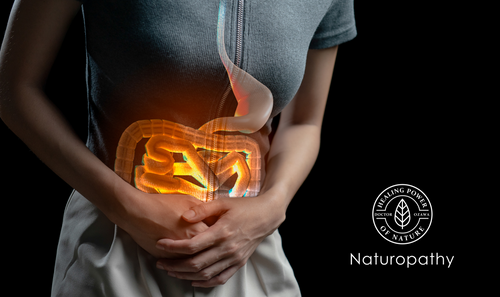Treatment of dysbiosis
Treatment of dysbiosis
Limitations of Antibiotic Treatment
Antibiotics are often prescribed when attempting to treat dysbiosis. However, as explained in the section on causes of dysbiosis, the use of antibiotics can significantly disrupt the intestinal flora balance, quickly causing abnormal growth of the harmful bacteria Clostridioides difficile and Candida, as well as killing the good bacteria together, which can further complicate the problem. Antibiotics should be avoided as much as possible except for hazardous bacterial infections.
So, the most effective treatment is to take probiotics such as lactobacillus, bifidobacteria, and bacillus, called good bacteria, and prebiotics that feed on the good bacteria.
Probiotics
Studies using probiotics have shown that probiotics can prevent and treat diarrhea caused by Clostridioides difficile and diarrhea caused by antibiotics, prevent and treat viral diarrhea, relieve symptoms of lactose intolerance, reduce putrefactive metabolites caused by harmful bacteria, prevent colon cancer, improve intestinal immunity, reduce intestinal inflammation It has been shown to reduce inflammation in the intestines, improve Crohn's disease and ulcerative colitis, improve symptoms of irritable bowel syndrome, improve the efficiency of H. pylori treatment, improve constipation, improve allergy symptoms, improve atopic dermatitis, prevent respiratory infections such as colds, and improve the efficiency of treatment of vaginal infections and bladder infections.
It has also been confirmed to reduce the burden on the liver by decreasing toxic metabolites in the intestines, improve insulin resistance by increasing short-chain fatty acids, improve cholesterol levels by improving intestinal cholesterol metabolism, and prevent osteoporosis by enhancing the absorption rate of minerals such as calcium and magnesium.
Fermented foods
Besides probiotic supplements, the best way to improve intestinal flora is to consume good bacteria by eating fermented foods. Eating more fermented foods is beneficial for maintaining good health, but most are sterilized by stomach acid, so the therapeutic effect will be slower than that of supplements. When choosing a probiotic supplement, be sure to select a product that has been developed to reach the intestines.
Prebiotics
Another way to improve intestinal flora is through prebiotics, such as inulin, dietary fiber, fructooligosaccharides, and galactooligosaccharides, which are food for probiotics. Foods rich in prebiotics include garlic, onions, leeks, asparagus, seaweed, burdock root, flaxseed, konjac, apples, unripe bananas, beans, almonds, and whole-grain oats.
Side Effects of Prebiotics
If you tend to accumulate gas or bloating that worsens when you eat foods high in fiber, you may have SIBO, which is an abnormal growth of intestinal bacteria.
How to Prevent Adverse Reactions to Prebiotics

If you are prone to build-up gas, polyphenols, especially the bioflavonoid-type prebiotics, which are not fiber-based, can be effective. Polyphenols that have also been shown to be effective as prebiotics include punicalagin in pomegranates, hesperidin and naringin in citrus fruits, quercetin in many vegetables, and rutin in buckwheat flour, which help increase Lactobacilli and Bifidobacteria, and the products of these beneficial bacteria, short chain fatty acids of the products of these beneficial bacteria. Furthermore, these bioflavonoid prebiotics have also been shown to inhibit the growth of harmful bacteria such as Salmonella. If fiber-rich foods do not agree with your gut, eating more pomegranates, citrus fruits, and grapes is also an excellent way to improve intestinal flora.
Activated Charcoal
Charcoal has long been used as a detoxifying agent. Activated charcoal adsorbs harmful toxins, chemicals, and heavy metals accumulated in the gastrointestinal tract and eliminates them from the body. In bacterial diarrhea, ingesting activated charcoal quickly relieves diarrhea symptoms by adsorbing the toxins produced by bacteria and bacteria themselves. Activated charcoal also adsorbs gas and undigested food to cleanse the digestive tract. In particular, those with bad breath and farts are likely to have putrefaction caused by harmful bacteria. Activated charcoal eliminates the source of the smelly odor from the mouth and farts by adsorbing harmful bacteria and metabolites of the bad bacteria.
Summary
The intestinal tract contains approximately 1,000 different species of bacteria, which play a significant role in our health. The balance of intestinal bacteria fluctuates depending on the individual's living environment and age. So, humans and intestinal bacteria have a profound interrelationship, and the external environment, diet, and stress can alter that delicate balance. When the intestinal balance is compromised, it is linked to various health problems. If you think you have an imbalance, it is possible to maintain your gut balance and health by taking probiotics and prebiotics and managing your diet with the right foods.
* These statements have not been evaluated by the Food and Drug Administration. This product is not intended to diagnose, treat, cure, or prevent any disease.

 US Dollar
US Dollar

